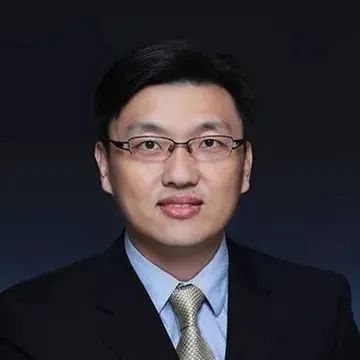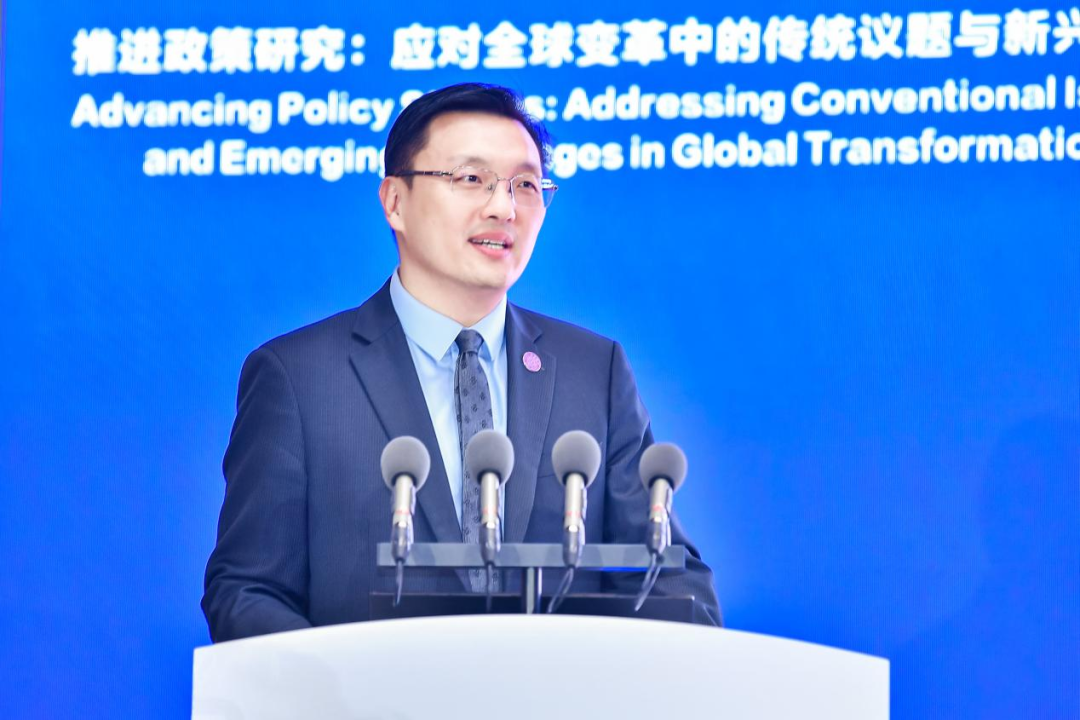点击蓝字
关注我们

朱旭峰
清华大学公共管理学院院长、科技发展与治理研究中心副主任、人工智能国际治理研究院科技治理方向首席专家
朱旭峰:
人工智能与公共治理?
数字时代公共行政的范式转变

6月6日下午,清华大学公共管理学院教授、院长朱旭峰在ICCPS 2025发表了题为“人工智能与公共治理?数字时代公共行政的范式转变”的学术演讲。
朱旭峰教授指出,当前公共行政面临着治理问题复杂性和不确定性增加、人才培养需求差异等挑战,但也迎来了AI技术崛起带来的机遇,推动了政策和服务的创新,促进了跨学科融合与研究范式的转型。
他强调,数字技术正快速向人工智能迈进,并深刻塑造着社会转型。数字技术推动了AI+在各个领域的应用,重塑了国家治理能力,推动了创新公共服务和公共管理创新发展。例如,在公共政务方面,一些地方政府使用AI提供公共服务,简化政府流程。
朱旭峰还探讨了智能时代公共行政学科的发展和变化。数字技术对公共行政研究和公共政策研究产生了深远影响,带来了新的研究主题和方法,但也带来了技术要求提高、资源不均衡等挑战。在公共管理人才培养方面,数字技术改变了技能需求和工作方法,要求教育方法做出调整,但也面临着师资能力不足、教学资源缺乏等问题。
最后,朱旭峰教授回顾了公共管理范式的演变历程,并提出关键问题:人工智能是否正在催生公共治理新范式?引发与会者的深入思考。

On the afternoon of June 6, Professor Xufeng Zhu, Dean of the School of Public Policy and Management at Tsinghua University, delivered an academic speech titled Artificial Intelligence and Public Governance? Paradigm Shifts in Public Administration in the Digital Age at the ICCPS 2025 conference.
Professor Zhu pointed out that public administration today faces increasing complexity and uncertainty in governance issues, as well as growing diversity in talent development needs. At the same time, the rise of artificial intelligence presents new opportunities—driving policy and service innovation, and promoting interdisciplinary integration and transformation in research paradigms.
He emphasized that digital technology is rapidly evolving toward artificial intelligence, profoundly shaping societal transformation. The advancement of digital technologies has enabled widespread applications of AI across various sectors, reshaping national governance capabilities and driving innovation in public services and administrative practices. For example, in public administration, some local governments have begun using AI to deliver public services and streamline government procedures.
Zhu also explored the development and changes in the discipline of public administration in the age of artificial intelligence. Digital technologies have had a profound impact on public administration and policy research, introducing new topics and methodologies. However, they have also brought challenges such as higher technical requirements and uneven access to resources. In terms of talent cultivation, digital transformation has changed the skill sets and working methods required in public management, calling for adjustments in educational approaches. Nevertheless, challenges remain, including insufficient teaching capacity and a lack of instructional resources.
Finally, Professor Zhu reviewed the evolution of public administration paradigms and posed a key question: “Is artificial intelligence giving rise to a new paradigm in public governance?” This thought-provoking inquiry sparked deep reflection among the conference participants.

清华大学人工智能国际治理研究院(Institute for AI International Governance, Tsinghua University,THU I-AIIG)是2020年4月由清华大学成立的校级科研机构。依托清华大学在人工智能与国际治理方面的已有积累和跨学科优势,研究院面向人工智能国际治理重大理论问题及政策需求开展研究,致力于提升清华在该领域的全球学术影响力和政策引领作用,为中国积极参与人工智能国际治理提供智力支撑。
新浪微博:@清华大学人工智能国际治理研究院
微信视频号:THU-AIIG
Bilibili:清华大学AIIG
来源 | 本文转载自“京师公共政策”,点击“阅读原文”获取更多内容
内容中包含的图片若涉及版权问题,请及时与我们联系删除

